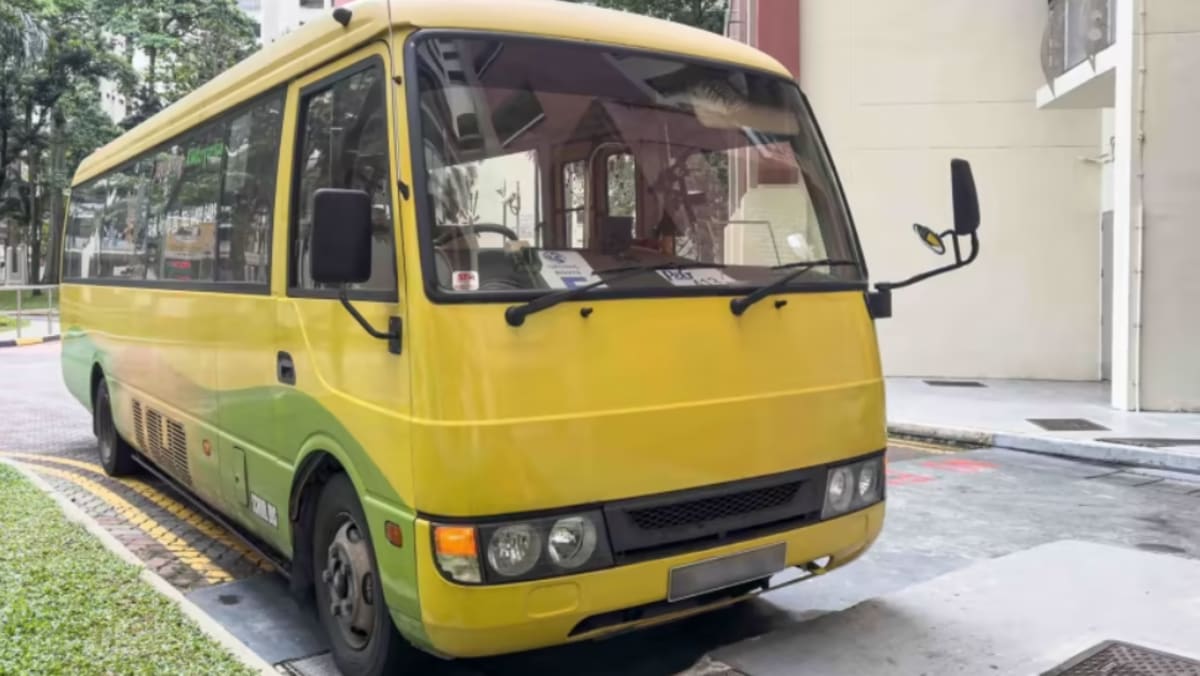
SINGAPORE: School bus operators will be provided with additional foreign worker quotas to increase the supply of bus drivers “on a time-limited basis”, announced the Ministry of Education (MOE) on Monday (Jun 12).
The recent shortage of drivers and rising cost pressures has made it more challenging for school bus operators to sustain their operations, said MOE in a press release.
This has resulted in cases of operators terminating their bus contracts with schools in the past few months, and has caused inconvenience for affected parents and students, said the ministry.
MOE has received “persistent feedback” from school bus operators about losing their school bus drivers and their difficulties in recruiting replacements.
Together with the Ministry of Transport and the Ministry of Manpower, MOE has decided it is necessary to provide selected operators with additional foreign worker quotas.
School bus associations and operators can apply to MOE to request for a higher foreign worker quota for school bus drivers, said the ministry.
“We will work closely with operators to phase in more foreign workers based on their needs, taking into consideration the extent of their participation in serving our schools, as well as their demonstrated continued efforts to actively recruit local school bus drivers,” it added.
The school bus contract template will also be revised, and will take effect for new contracts awarded to operators for their services from 2024, said MOE.
Operators will be allowed to submit two sets of bus fares for both the initial contract and option periods, which would allow them to take expected cost increases into account, instead of being contractually bound to the same fares for the whole contract period.
A typical school bus operator contract lasts four years, with a two-year initial contract period and an option period of another two years.
OTHER REVISIONS TO HELP SCHOOL BUS OPERATORS
Other revisions to the school bus contract template include giving operators greater flexibility in discussing their service provisions with schools and parents, following feedback.
These revisions will account for an adjusted distance range, and allow operators to designate common pick-up and drop-off points, said MOE.
The use of common pick-up and drop-off points could help operators deploy their drivers more efficiently, as it allows them to ferry more students on each school bus route and possibly use larger capacity buses.
Such an arrangement could also help bus operators cope with fewer drivers and may help reduce the overall journey time due to fewer stops, said MOE.
Under the revised contract provisions, bus operators are now contractually required to transport students living within 4km of their schools, down from 6km previously.
Parents who live further away can still request the bus operator to offer the service, and the bus operator can consider the request on a “best-effort basis”. They can offer the service at a negotiated price that is not contractually capped, said MOE.
“While these measures aim to ensure the continuity of school bus services, operators may need to continue to adjust their operations to manage their constraints,” it added.
“These may include investing resources to hire and train new drivers and adjusting bus fares to reflect the costs of operations.”
“Parents who are considering school choices for their child are also encouraged to consider primary schools that are nearer to home, and take into account the transport options available.”

